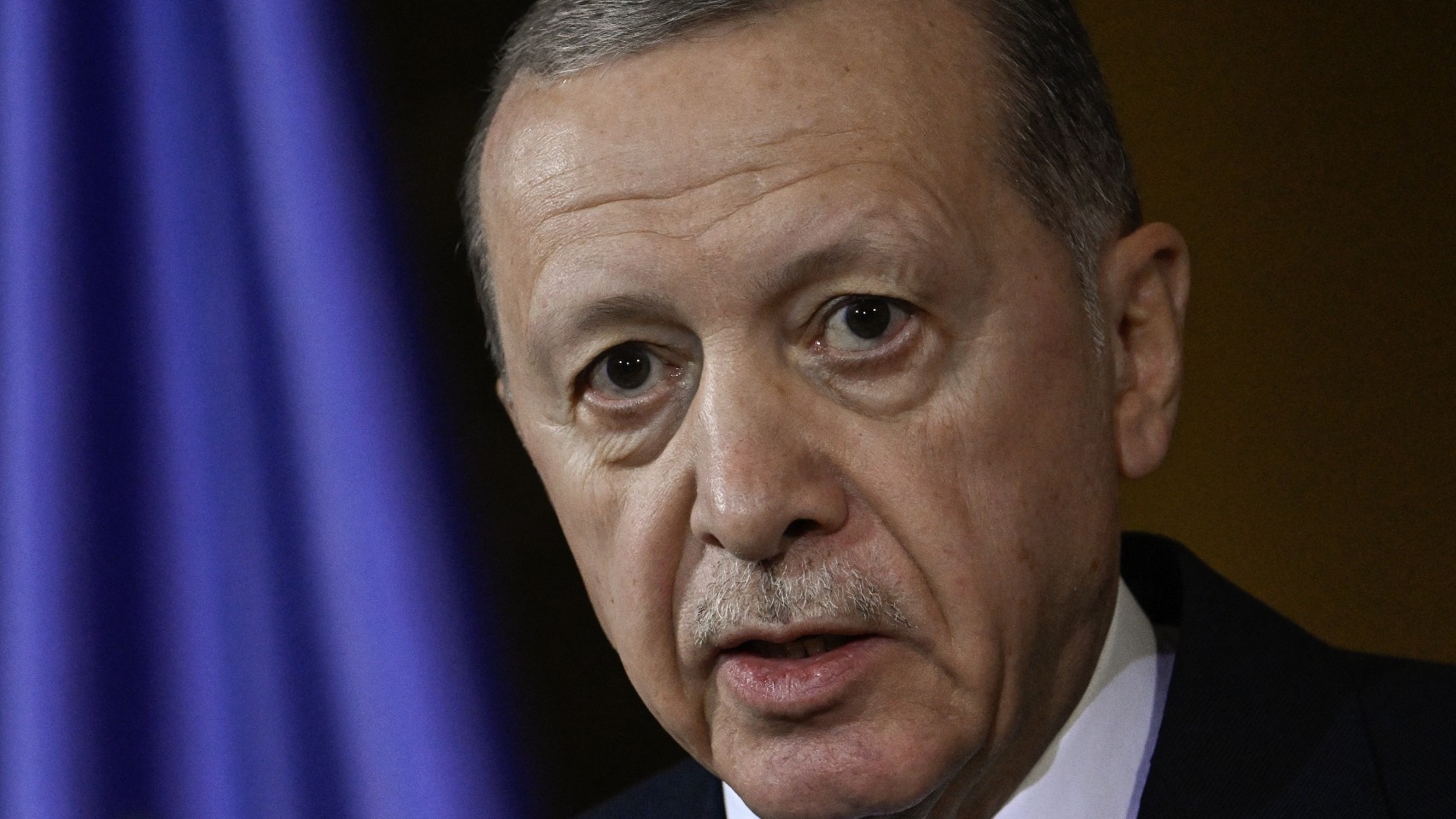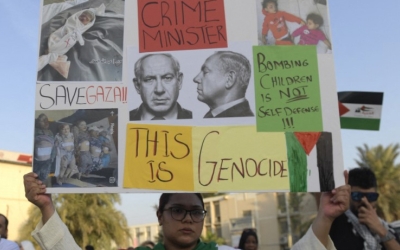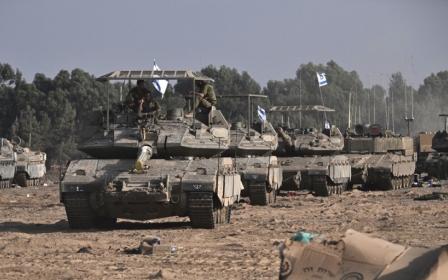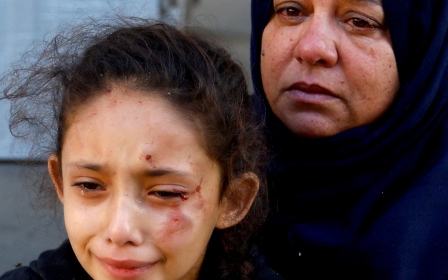Israel-Palestine war: Why Turkey's call for a ceasefire fell on deaf ears

When the Palestinian group Hamas attacked Israel on 7 October, killing hundreds of civilians and soldiers, Turkish authorities swiftly asked its leaders to leave the country. Ankara did not want to be associated with the attack, aiming to position itself as a mediator.
In the initial aftermath, Turkish President Recep Tayyip Erdogan issued balanced statements, condemning both the Palestinian fighters' attack and Israel’s bombardments of Gaza. He called for de-escalation and dialogue, noting that Ankara was ready to help facilitate the release of hostages.
But these calls didn’t bear fruit, and Ankara’s diplomatic impact on the conflict has been limited, with no ceasefire on the horizon. Why?
There are a few reasons why Turkish diplomatic outreach has not obtained the desired results. Its tools in this conflict have been meagre.
The situation differs from Turkey’s success in mediating the Russia-Ukraine war, where it had certain advantages. Ankara is a crucial economic partner for both Russia and Ukraine, and it maintains an open dialogue with both. When Erdogan called for ceasefire talks, both nations had confidence in him, and they were willing to talk.
New MEE newsletter: Jerusalem Dispatch
Sign up to get the latest insights and analysis on Israel-Palestine, alongside Turkey Unpacked and other MEE newsletters
On the Gaza war, however, Ankara doesn’t have sufficient leverage to compel Israel to attend talks. While Ankara and Tel Aviv have strong economic links, they don’t carry any political weight, and they aren’t existential.
Israeli Prime Minister Benjamin Netanyahu has no love for Erdogan, and the feeling is mutual. Israeli officials have said they are not willing to negotiate until Hamas frees all hostages. Israel has thus been focused on revenge and “erasing Gaza” rather than seeking dialogue.
Brokering deals
Surprisingly, Israel’s leaders did not issue any statements of public appreciation after Ankara immediately asked Hamas leaders to leave the country in the wake of the 7 October attack. Compared with states such as Iran, Turkey has shown that it has a more balancing impact on the armed group, which could benefit all parties involved.
The Jordanians, Egyptians and Qataris have also made efforts to broker deals. Both Israel and Hamas appear to have picked Qatar for the bulk of the talks, due to longstanding ties and Doha’s ability to broker previous deals.
Follow Middle East Eye's live coverage for the latest on the Israel-Palestine war
For its part, Washington has not cooperated with Turkey on the latest crisis, as US President Joe Biden has opted to unconditionally support Netanyahu, killing the prospect of more significant talks. While US Secretary of State Antony Blinken has discussed the issue of hostages with his Turkish counterpart, Hakan Fidan, Ankara’s influence within the White House has been limited for the past decade amid a series of disputes.
Turkey, from the beginning of the crisis, has sought de-escalation, rather than a regional apocalypse
Turkey has instead focused on attainable goals. Touring the region, Fidan conveyed a single message to Jordan, Egypt, Saudi Arabia and the UAE, according to my sources: “Ankara is ready to back the Arab countries in their stance against Israel. It doesn’t look to gain anything out of this conflict and would like to see a united front.”
Ankara backed Egypt’s peace conference, as Riyadh snubbed Blinken by making him wait for hours and then postponed a scheduled meeting. Jordan recalled its ambassador to Israel for consultations and Ankara followed suit.
Riyadh wanted to host a conference with Islamic countries on Palestine, which my sources say was inspired by a Turkish proposal on the subject, and Ankara backed the effort. Turkish diplomats came up with several ideas for the ensuing joint declaration that focused on an International Criminal Court investigation and seeking a ruling from the International Court of Justice against Israel, along with mechanisms to collect evidence on Israeli war crimes.
Criticising Israel
Fidan has also proposed a “guarantorship system” for the Palestine-Israel conflict, suggesting that international forces should be present in Gaza to avoid further rounds of escalation.
Erdogan, meanwhile, has effectively used his media presence to call out Israel’s heavy-handed tactics, underscoring the West’s inaction and double standards amid the massive humanitarian crisis and mounting death toll in Gaza.
Some social media commentators have suggested that Ankara could act militarily against Israel, but such a prospect is illogical. Turkey isn’t a rogue state that would go to war against a neighbour unless its direct interests were openly targeted. Turkey, from the beginning of the crisis, has sought de-escalation, rather than a regional apocalypse.
Ankara, based on several diplomatic crises with Tel Aviv, has learned that punitive actions against Israel don’t tend to deliver results. Because its leverage against Israel is quite limited, Turkey has instead focused on ways to maintain dialogue, while openly criticising Israel over its atrocities in Gaza.
Erdogan is likely to continue these intense verbal attacks against Israel as long as the Gaza onslaught continues. At the same time, the country will do all it can to help alleviate Gaza’s suffering through emergency humanitarian aid and bringing critically ill patients to Turkey.
The views expressed in this article belong to the author and do not necessarily reflect the editorial policy of Middle East Eye.
This article is available in French on Middle East Eye French edition.
Middle East Eye delivers independent and unrivalled coverage and analysis of the Middle East, North Africa and beyond. To learn more about republishing this content and the associated fees, please fill out this form. More about MEE can be found here.






